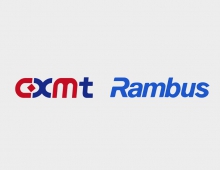
FTC Dismisses Case Against Rambus
Rambus Inc. said Thursday that the Federal Trade Commission (FTC) has issued an order dismissing the remainder of its case against the company.
This follows a recent denial of the Commission?s request for certiorari with the United States Supreme Court to review the Rambus case and brings the seven-year matter to a close.
Rambus has fought several legal battles over chip patents, which generate most of its revenue. Chip manufacturers forced to pay royalties to Rambus have accused the company of quietly seeking rights to memory chip technology in the early 1990s even as it participated in an industry standards-setting body, thereby profiting from the body's decisions.
"We are pleased to have finally put this matter behind us," said Thomas Lavelle, senior vice president and general counsel at Rambus. "Rambus has prevailed on similar JEDEC-related claims at the Court of Appeals for the Federal Circuit, in front of a jury, and before a federal district court. The FTC?s decision to drop its remaining JEDEC-related claim against us was the right one."
In its order, the FTC indicated it would not pursue further proceedings against Rambus in this matter, stating "the Commission finds that further litigation in this matter would not be in the public interest."
The FTC originally brought charges against Rambus in 2002 relating to Rambus? 1992-1995 participation in an industry standard setting committee, the Joint Electron Device Engineering Council (JEDEC). A three-month trial was held in the spring of 2003 before then Chief Administrative Law Judge (ALJ) Stephen McGuire, who issued his initial decision exonerating Rambus with over 1,600 findings of fact in its favor in early 2004. The FTC?s own Complaint Counsel appealed the ALJ?s decision to the full Commission, which reversed the ALJ and found Rambus liable for violating Section 2 of the Sherman Act. Following Rambus? appeal of that decision, the Court of Appeals for the District of Columbia (CADC) vacated the FTC orders and the Supreme Court denied the Commission?s request for review.
Rambus has fought several legal battles over chip patents, which generate most of its revenue. Chip manufacturers forced to pay royalties to Rambus have accused the company of quietly seeking rights to memory chip technology in the early 1990s even as it participated in an industry standards-setting body, thereby profiting from the body's decisions.
"We are pleased to have finally put this matter behind us," said Thomas Lavelle, senior vice president and general counsel at Rambus. "Rambus has prevailed on similar JEDEC-related claims at the Court of Appeals for the Federal Circuit, in front of a jury, and before a federal district court. The FTC?s decision to drop its remaining JEDEC-related claim against us was the right one."
In its order, the FTC indicated it would not pursue further proceedings against Rambus in this matter, stating "the Commission finds that further litigation in this matter would not be in the public interest."
The FTC originally brought charges against Rambus in 2002 relating to Rambus? 1992-1995 participation in an industry standard setting committee, the Joint Electron Device Engineering Council (JEDEC). A three-month trial was held in the spring of 2003 before then Chief Administrative Law Judge (ALJ) Stephen McGuire, who issued his initial decision exonerating Rambus with over 1,600 findings of fact in its favor in early 2004. The FTC?s own Complaint Counsel appealed the ALJ?s decision to the full Commission, which reversed the ALJ and found Rambus liable for violating Section 2 of the Sherman Act. Following Rambus? appeal of that decision, the Court of Appeals for the District of Columbia (CADC) vacated the FTC orders and the Supreme Court denied the Commission?s request for review.





















